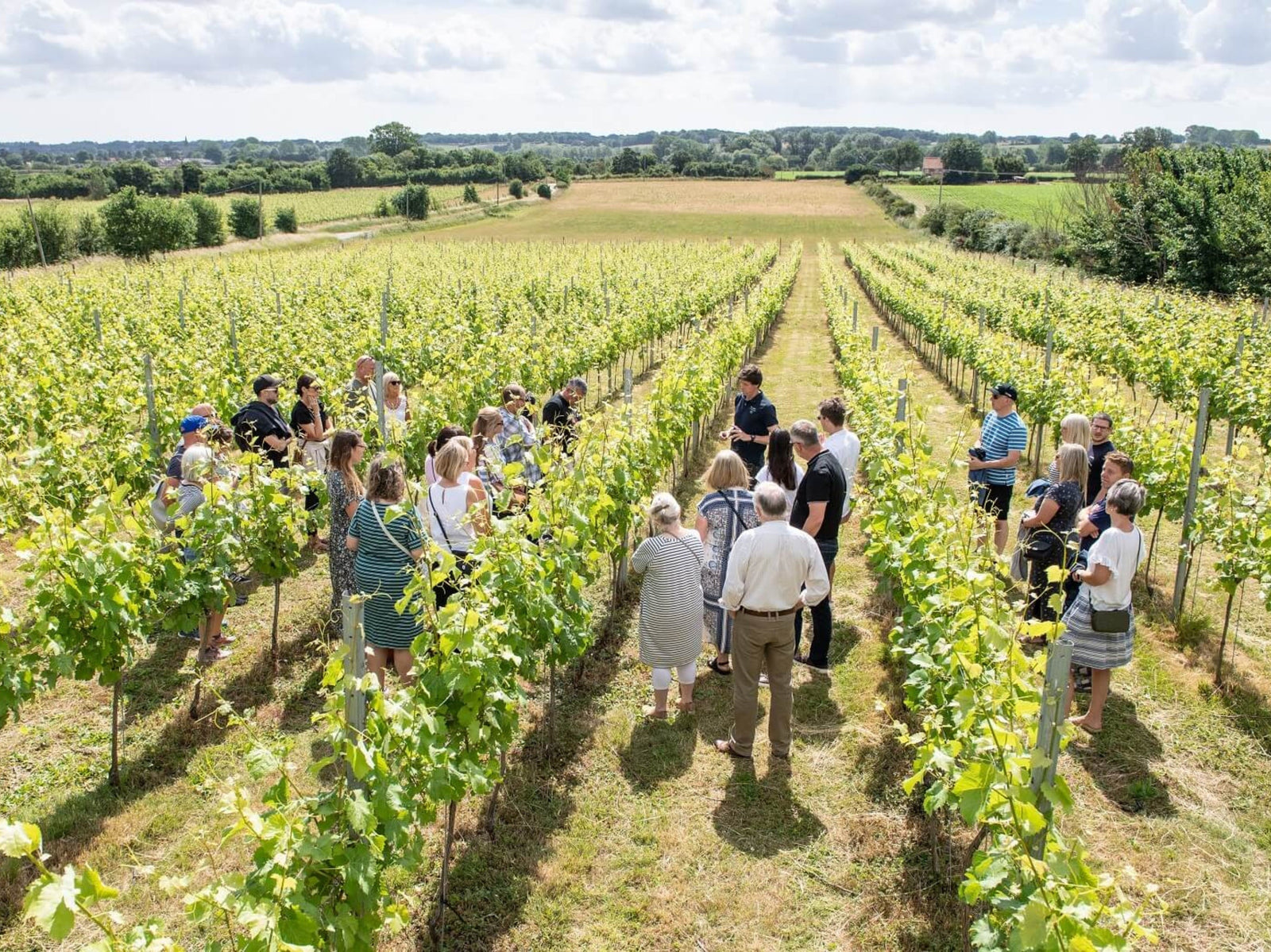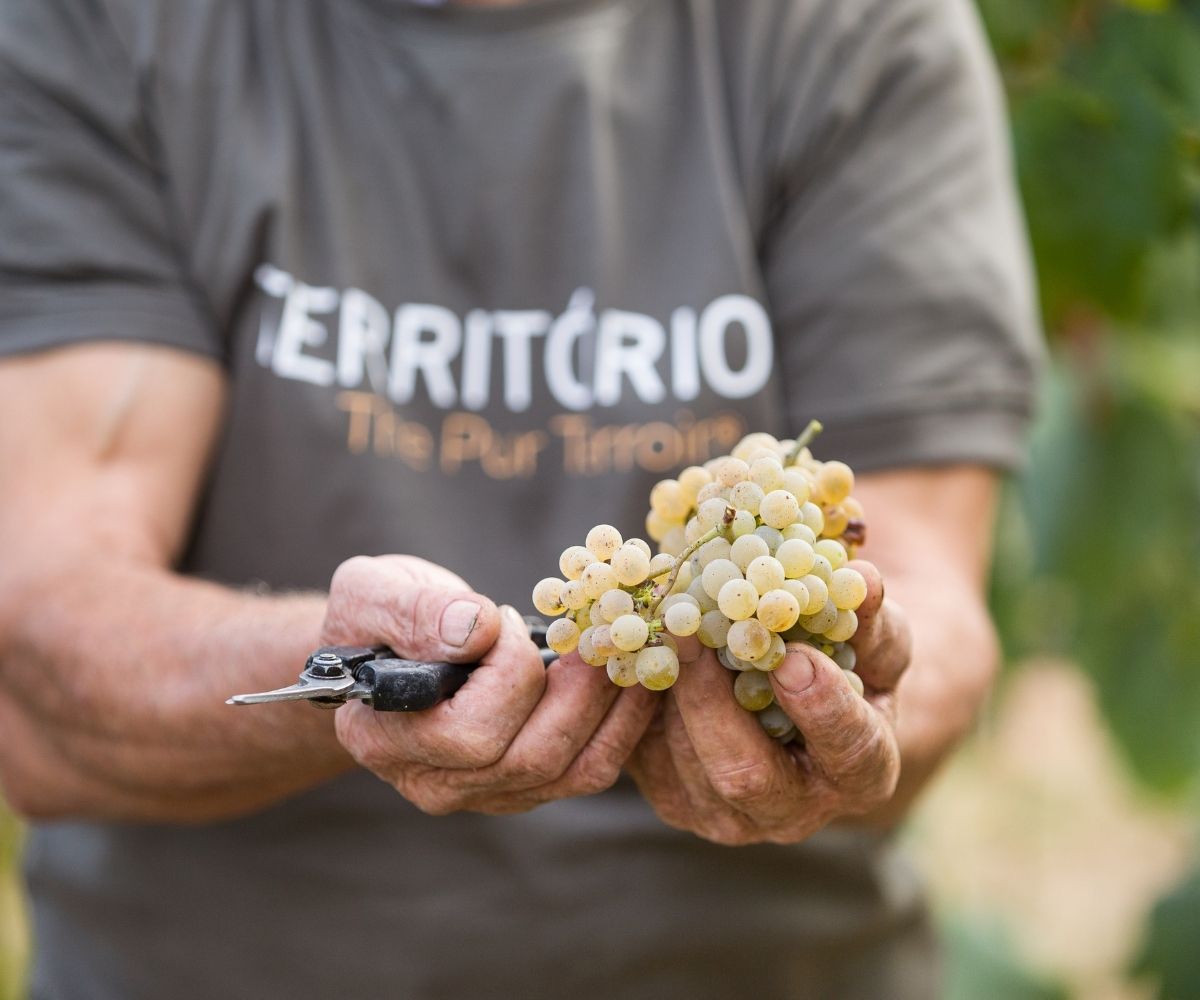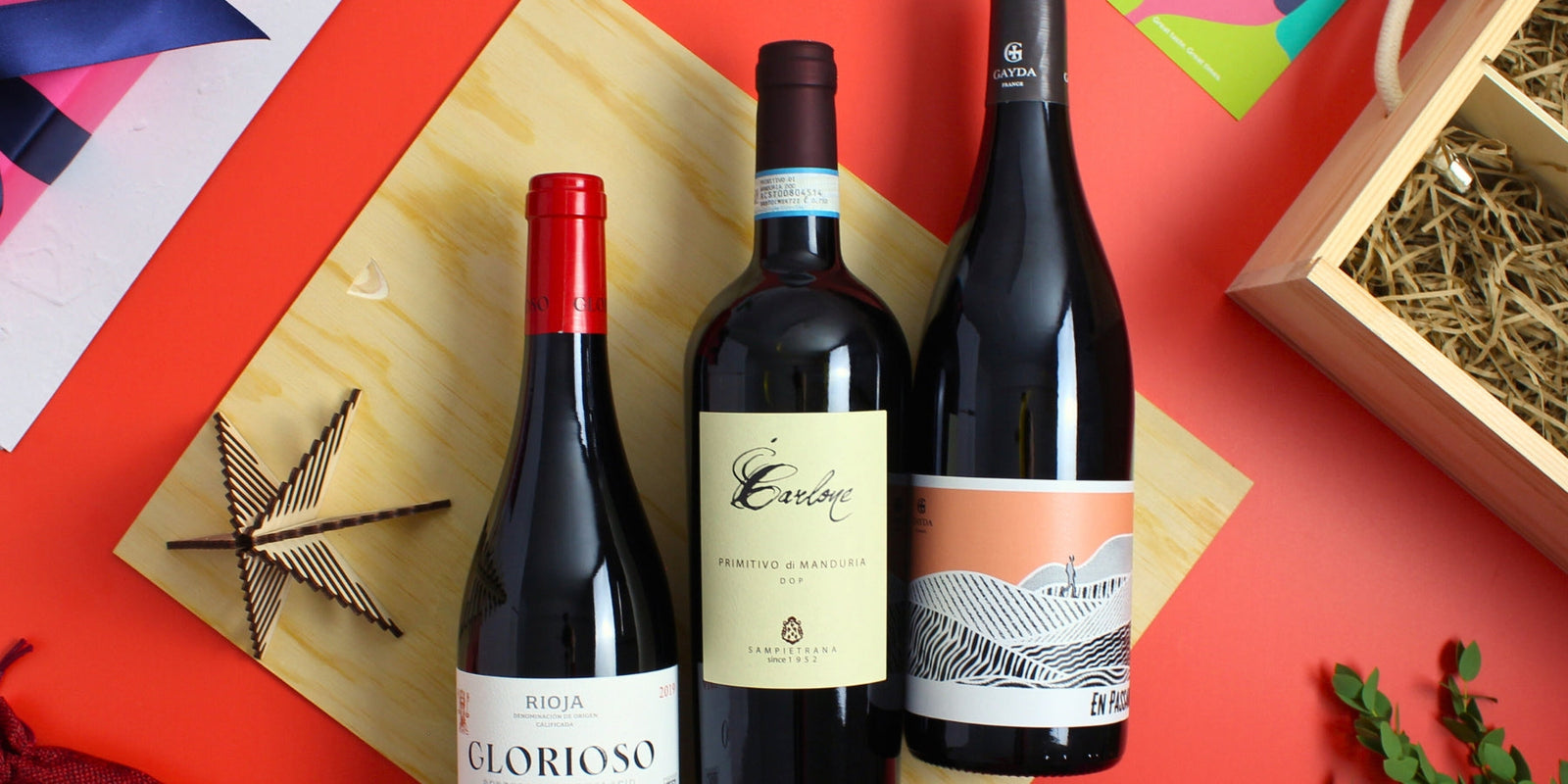
🍷 English Wine Is Having a Moment – Here’s Why
Ten years ago, if you told your mates you were bringing an English wine to dinner, you’d probably get a few raised eyebrows. Now? People are asking for it.
Walk into any decent wine shop or restaurant and you're likely to find a bottle or two of English fizz rubbing shoulders with the Champagne. And it’s not just sparkling – still wines from England are finally getting the attention they deserve.
So, what’s going on? Let’s take a closer look at the health of the English wine industry in 2025 and meet a couple of brilliant producers flying the flag for homegrown wine.
🍇 From Hobby to Heavyweight: The Growth of English Wine
What was once a niche industry has grown into a proper success story. As of 2023, there are 1030 commercial vineyards in England, covering close to 4,200 hectares of land. That’s more than triple what we had back in 2009.
And the wines? They’re not just local curiosities anymore. In 2023 alone, English producers made 21.6million bottles. Most of that (around76%) was sparkling wine - our cooler climate and chalky soils make ideal conditions for styles similar to Champagne. But still wines are catching up fast.
What’s even more exciting is where the industry’s headed. By 2032, WineGB reckon we’ll be producing up to 29 million bottles a year, with vineyard land expected to double to 7,600 hectares.
🌦 Not All Sunshine and Bubbles
Of course, it’s not all rosy. The cooler, cloudier 2024 growing season meant smaller yields for many vineyards. And like every other industry, English wine has had to battle rising costs - everything from glass bottles to fuel has gone up.
But even with these challenges, the sector’s holding strong and the number of people working full-time in wine is growing too.
More people are visiting vineyards, taking tours, and drinking English wine at bars and restaurants. Wine tourism now brings in almost a quarter of total industry revenue, and visitor numbers shot up by 55% in 2024 compared to 2022 alone.
Climate change is definitely playing a part in this story. While it brings risks (like new pests and diseases), it’s also helping grapes ripen more consistently — something English winemakers used to dream about.
So what is it about the vineyards that makes them so suitable for making wine and has it always been that way?
England has produced wine since Roman times. Due to the country’s cool climate and rich soils, many vineyards planted in the middle of the 20th century are now providing the ideal source for modern winemakers. The climate is moderated by the Gulf Stream, and the chalk-based soils in some areas are just the right kind for sparkling wine production. Additionally, due to global warming, new regions in England are becoming suitable for growing grapes as warmer conditions enable grapes to ripen fully.
One of the things we love here at Reserve about English wine is that it's not mass-produced. Many of the vineyards and wineries found across the country operate on a smaller scale due to the lower yield of grapes. A lower yield means a more labour-intensive production method. Of course, this does mean English wines tend to be a little pricier. But the wine you do get is really great quality.
In celebration of English Wine Week, which runs from the 21st - 29th June, we're delighted to be bringing some brand new wines into our range from two brilliant producers of English wine, Flint Vineyards and Harrow & Hope.
To help you get a better idea of who they are and what makes them special, we’ve put together a small introduction into both wineries and some of the stand-out wines they have to offer.

Flint Vineyard
Flint Vineyard has been making wine since 2016 under the ambitious direction of winemaker Ben Witchell. Ben gave up a career in IT to pursue his passion of winemaking and after completing 3 year Viticulture degree at Pumpton college, and 2 years working in Beaujolais he teamed up local farmer and entrepreneur, Adrian Hipwell to begin the dream of Flint in Earsahm, Norfolk. Ben had identified the area as being one of the driest and sunniest and locations in the UK, with pockets of soil that were suitable for growing grapes and it just so happened that Adrian owned one of them. Their focus is on ultra-premium, low-volume still wines, using the best fruit from their own and partner vineyards. They take a scientific approach and Ben's dedication has led him to become recognised as one of England’s most exciting new wine producers.
Since then, Flint Vineyard has flourished. There are now over 26,000 vines covering 6 hectares and a state-of-the-art winery allows wine production at the highest level.

Ben and his team are excited about the future and have plans to develop new wines and extend the winery and plantings. The idea is just to keep striving to be better and continue to produce ever more exciting and delicious wines.
We noticed the improvements they're making in the latest vintages of their still wines. The Flint Vineyard, Fume 2024 is a seriously good wine that has a lean elegance to the apple, apricot and smoky nettle aromas while carrying a richness on a medium-weight palate that carries through to a textured and mouthwatering finish.
Find out more about Flint including details of how to visit, over at: Flint Vineyard | Innovative English wine producer
Harrow & Hope

Harrow & Hope is a small family-owned winery in Marlow that produces world-class sparkling wine. The soil and environment of the Chiltern Hills are ideal for growing Chardonnay, Pinot Noir and Pinot Meunier grapes. The winery is expensive to run but the team believes that the right equipment is necessary to get the best out of the grapes. The founder comes from a wine-obsessed family and has been passionate about winemaking from a young age. He and his wife Kaye started their first vineyard project in France before returning to England to start Harrow & Hope.
They have since built a dedicated team and have received help from family, friends, and experts in the industry. including Mike Roberts OBE from Ridgeview Vineyards and Dr Tony Jordan, an Australian sparkling pioneer. Their philosophy in the vineyard is to help the vines express the character of their site in their wines working organically, focusing on building the natural biome and avoiding synthetic pesticides and herbicides.

Their 6.5-hectare vineyard is located on a Thames gravel terrace with a complex layer of clay, flint, and gravel where they grow Pinot Noir, while the Chardonnay and Pinot Meunier are grown further down the slope where the clay layer is thinner and there is pure chalk. In the winery they focus on preserving the quality of the fruit during the traditional method process. They have invested in a state-of-the-art winery and pay attention to every detail. Fermentation is done in small batches using stainless steel tanks and oak barrels and are increasingly using native yeast for fermentations.
All that effort comes together beautifully in their Brut Reserve No 9 Pure, fresh and elegant, it's an absolute belter with plenty of green apple and lemony citrus fruit, mingling with some apple pie and toasty brioche notes.
Find out more about Harrow & Hope including how to visit their vineyard over at: Home - Harrow & Hope (harrowandhope.com)
❓ Frequently Asked Questions
Why is English sparkling wine becoming so popular?
The climate, soil, and winemaking skill combine to create world-class fizz that rivals Champagne.
How many vineyards are there in England now?
Around 1030 vineyards as of 2023, covering over to 4,200 hectares.
Is all English wine sparkling?
Nope! While 76% is sparkling, still wines are booming – think crisp Bacchus, juicy Pinot Noir, and some surprisingly rich Chardonnays.
Is climate change good for English wine?
It’s complicated. Warmer summers help grapes ripen, but new diseases and weather extremes bring fresh challenges.
Are English vineyards eco-friendly?
Many are. There’s a big move towards organic growing, low-intervention winemaking, and planting disease-resistant varieties.
Which vineyards should I try first?
Big names like Gusbourne are always solid, but don’t miss smaller stars like Flint Vineyard and Harrow & Hope.

The English wine industry isn’t just surviving - it’s thriving. From ambitious start-ups to family-run estates, producers are crafting wines full of character, quality, and a real sense of place. Whether you're a die-hard fizz fan or just curious to try something local, there’s never been a better time to explore what England has to offer in a glass.
Discover our selection of home-grown grapes here. and discover your new favourite bottle today.









Leave a comment (all fields required)